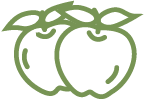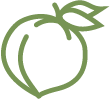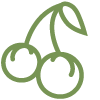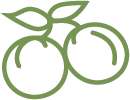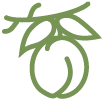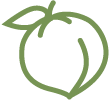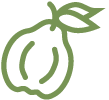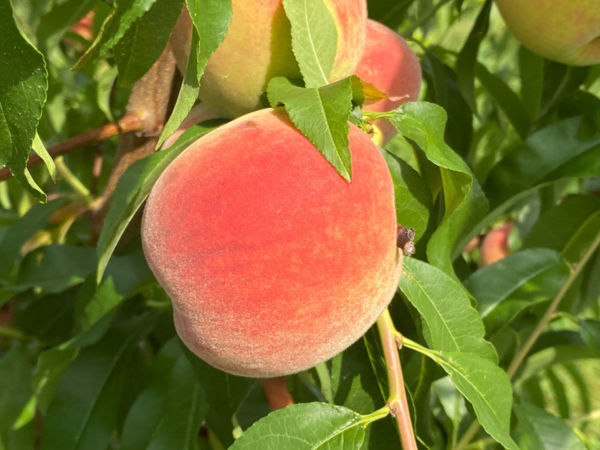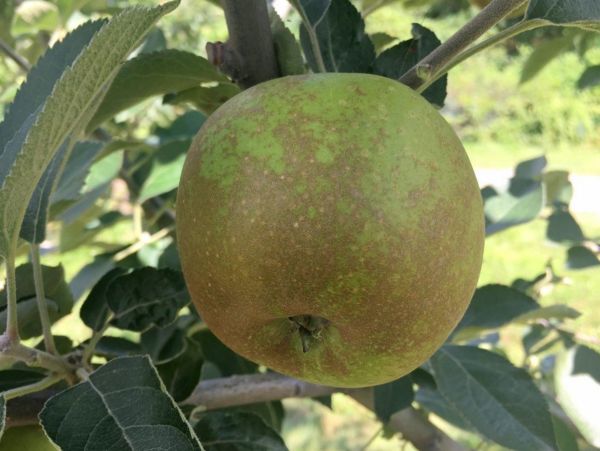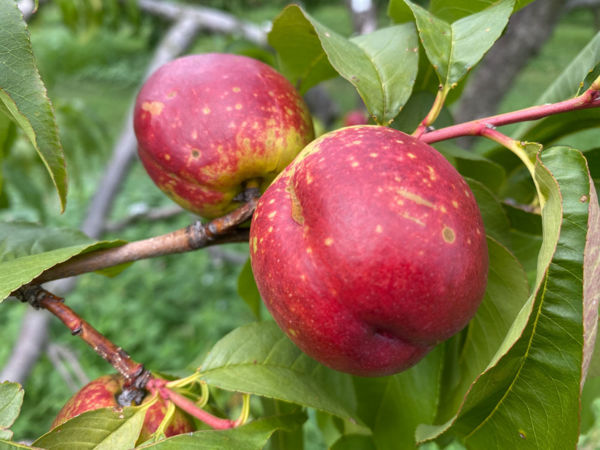An attractive, highly disease-resistant apple, ideal for organic growers.
Peach Leaf Curl
Fruits Affected
Also See
Fruit Tree Diseases and Pests: An IntroductionList of Common Fruit Tree Diseases and Pests
Peach leaf curl is an infection caused by the fungus Taphrina deformans. It affects the blossoms, shoots, leaves, and fruit of peach and nectarine trees.
Symptoms
Malformed, puckered and “bubbly” leaves that turn red; defoliation.
Organic Treatments
Most peach varieties are susceptible to leaf curl, and the few that are resistant are not highly regarded in terms of fruit quality. Fortunately, since the weather conditions that promote leaf curl are so narrow and specific, you may never come face to face with this disease. Spray Cueva before bud break in the spring. This will prevent peach leaf curl.
Conventional Treatments
A dormant spray of Kocide of Bravo is extremely effective against peach leaf curl.
Disease Cycle
Peach leaf curl is an infection caused by the fungus Taphrina deformans. It affects the blossoms, shoots, leaves, and fruit of peach and nectarine trees. This is a fun-loving disease that grows between plant cells, causing them to divide and grow larger than normal. It's a party in your poor peach tree! Cells of the fungus break free from the outer surface of the leaves and produce asci (sacs), which release ascispores (sexual spores). These are carried to new tissue, where they create bud-conidia (asexual spores), which increase by budding and create a film of fungus on the tree that can survive for several years. In spring, the bud-conidia germinate during periods of rainfall. The fungus is most active in cool (around 45-55°F), wet weather. For infection to enter leaves, the surface must be wet for at least 12.5 hours and the leaves must be young. The symptoms of peach leaf curl are impossible to miss.
You can spot it a mile away. First, reddish areas will appear on infected leaves. These will then thicken, pucker, bubble, and curl as the out-of-control cell growth distorts the form of the leaf. The leaves will then turn yellow, then grey-white as the spores become visible. After sickened leaves fall, fresh ones will grow in their place that will either be healthy or become infected, depending on weather conditions. When twigs and shoots are infected, these also become twisted and distorted. Infected fruit becomes warty and may crack. Uncontrolled peach leaf curl will, over several years, cause the tree to sicken beyond repair.
For more information, see the Cornell Plant Disease Diagnostic Clinic Factsheet on Peach Leaf Curl.
Featured Products
A few things we're loving right now...
A full-flavored, freestone white peach.
One of America's oldest apples, good for storage, baking, and cider.
A widely-grown, large, yellow-fleshed nectarine.

